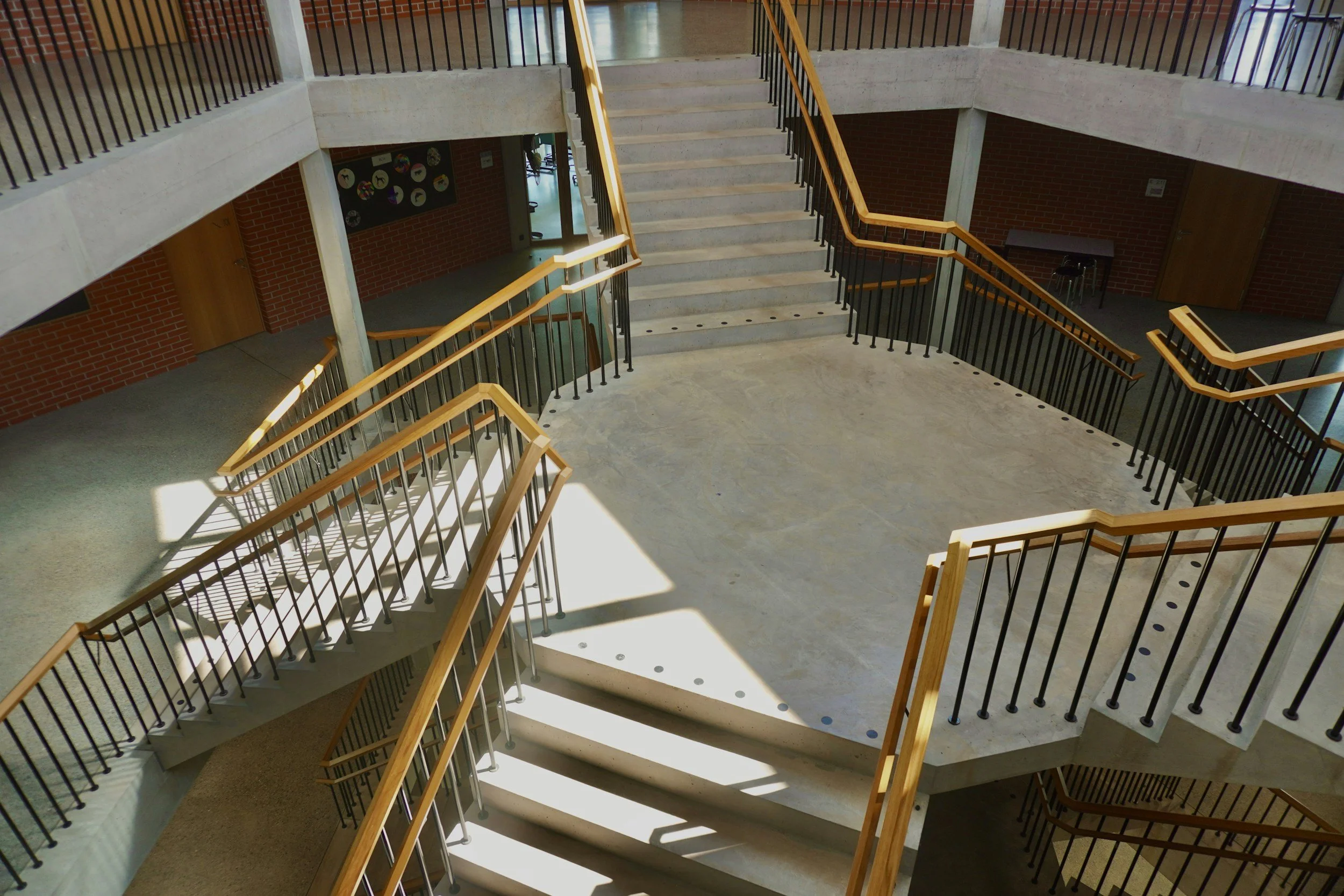A Good Career, A Good Life: The Psychology of Choosing What’s Right for You
Ever seen The Phantom of the Opera?I can now say I have, and - chapeau. The music, the scenography, and honestly, the plot. I didn’t quite expect this post to come out of my evening at the opera house. But somewhere between the candlelit boat ride and the crashing chandelier, I heard a tiny voice whisper: “Write me. That’s all I ask of you.” (If you got that reference, my occasionally embarrassing sense of humor will feel right at home.)
Christine is a gifted young soprano at the Paris Opera. She’s caught the eye of Raoul, Vicomte de Chagny, and the feeling is mutual. They dream of a future together. But Christine has also enchanted Erik (the Phantom of the Opera), a masked musical genius who lives beneath the stage, seeing her as both muse and salvation. I won’t spoil the whole story, but eventually Christine must choose: between Raoul and the Phantom, comfort and calling, a life and a craft.
Watching her dilemma unfold, I couldn’t help but see it mirrored in a question many of us face: Can you have a good career and a good life? Or do we, like Christine, eventually have to choose?
The Dilemma
Christine’s choice is more than a love triangle, at least that’s how I interpret it. Raoul offers safety, tenderness, a life above ground. The Phantom represents danger, genius, and obsession. This isn’t just about who she loves. It’s about who she wants to become.
We all often find ourselves choosing between a version of Raoul and a version of the Phantom. And no, I don’t mean just the men.
The fork in the road appears when we ask questions like:
Do I take the stable job or start my venture?
Do I stay close to my family or move abroad for an opportunity?
Do I prioritize my relationship or pursue my ambition full-throttle?
The cultural myth is that we can “have it all.” But the reality is murkier, more nuanced.
Sometimes, the most important decisions are not about having everything, but about choosing well.
Personality and Preference: Why We Choose Differently
Since I’m currently diving into the Individual Differences module of my Psychology Master’s program, I have to say: personality psychology is absolutely fascinating. It’s helped me see that not everyone would choose the same path Christine does, and that’s not just because of life circumstances. It’s about wiring.
One of the most useful frameworks for understanding this is the OCEAN model, also known as the Big Five:
Openness to Experience: If you score high here, you’re likely drawn to novelty, creativity, and unconventional paths.
Conscientiousness: High scorers tend to value structure, goals, and long-term planning.
Extraversion: Do you draw energy from connection or solitude? That shapes whether you gravitate toward people-centered lives or more solitary, craft-driven ones.
Agreeableness: A high score here often pulls you toward harmony and connection, sometimes at the expense of raw ambition.
Neuroticism: High emotional reactivity might drive you toward safety or toward intensity that matches your internal world.
People often talk about values when it comes to life choices. And values do matter. But I think traits matter just as much.
I’ve made both kinds of choices. I’ve said yes to intense, high-stakes roles that left me exhilarated and exhausted. I’ve also turned down offers that would have looked great on paper but would’ve meant trading my autonomy for a title. I’ve also enjoyed seasons where my personal life - love, fulfillment, hobbies - fully took over, and others where I was completely captivated by an idea, a job, or a project.
In both cases, it wasn’t just strategy. It was temperament, or how I’m built.
(If you're curious about your wiring, you can take a free Big Five test here.)
The Myth of Balance: Psychology’s Take
So, how do we find that elusive “balance”? That mythical point where career and life stand in perfect, peaceful symmetry, like two dancers moving in unison, never stepping on each other’s toes?
Psychologists offer a few clues, and they start by reminding us that balance isn’t always what we think it is.
Self-Determination Theory says that to thrive as human beings, we need three core ingredients:
Autonomy – a sense of control over our choices;
Competence – the ability to do things well and feel effective;
Relatedness – meaningful connection to others.
If your job gives you mastery but no relationships, or deep connection but no freedom, something will feel off. We’re wired to want all three, and when one goes missing, the others can’t fully compensate.
Then there’s Flow, a concept coined by Mihaly Csikszentmihalyi (people probably spend as much time reading his work as they do learning to pronounce his last name), describing those moments when we’re completely absorbed in what we’re doing, so much so that time seems to disappear. Many of us chase careers that deliver these experiences: a sense of purpose, focus, even joy.
And it’s no wonder: flow feels incredible. But flow alone doesn’t make a life. You can spend 12 hours in a perfect state of flow and still come home to a quiet ache, a sense that something is missing.
More recently, researchers and thinkers have begun to challenge the entire premise of “balance” as a goal. The idea that life and work should be held in equal weight, every single day, can feel more punishing than liberating. Instead, what seems more realistic and more compassionate is the idea of integration and seasonality.
Maybe there are seasons of intensity, where work demands more from us, and that’s okay. Maybe there are quieter seasons, where we choose to step back, slow down, and focus on rest, relationships, or just being. Maybe the point isn’t to achieve balance every day, but over the course of a life.
In other words, the dream isn’t symmetry. It’s harmony. Not a perfect 50/50 split, but a rhythm that feels right, where all the parts of us get to speak, eventually.
The Phantom Trap: When Passion Becomes a Prison
The Phantom is seductive, not just to Christine, but to anyone who has ever fallen in love with their own ambition. His underground world is full of art, music, intensity. But it’s also lonely, obsessive, and controlling. Passion can become a trap.
This is where it gets personal. Because some of us, consciously or not, absorb the Phantom’s narrative: that to be extraordinary, you must suffer. That comfort dulls creativity. That a good life is the enemy of a great career.
But is it? Or is that just a myth we need to outgrow?
This isn’t just an opera metaphor. We’ve all seen people burn out in the name of excellence. We’ve seen passion harden into perfectionism. I’ve been there too: so deep in the work that I forgot why I started. So focused on getting somewhere that I didn’t notice I wasn’t enjoying the ride.
The Phantom doesn’t offer Christine a life; he offers her a role. And if we’re not careful, our careers can do the same.
The Case for Raoul: A Good Life is Not a Cop-Out
Let’s not romanticize struggle. There’s also something to be said for Raoul, the one who shows up, supports, anchors, listens. In a world that glamorizes hustle, Raoul represents the radical beauty of presence.
Sometimes the most courageous thing isn’t to strive, it’s to stay. To build something quietly. To opt out of the race. To choose time over status, love over legacy, peace over pressure.
And who says Christine can’t be a successful soprano if she chooses Raoul?
Choosing love doesn’t mean giving up on her voice. Choosing connection doesn’t mean abandoning ambition. The Phantom tries to convince her that greatness demands sacrifice, isolation, and torment. But maybe that’s his story, not hers.
How to Choose: Tips for Finding Your Harmony
Here’s what I’ve learned from reading psychology papers and from messing up repeatedly:
🧠 Know your wiring.
Notice what energizes you vs. what depletes you. Personality matters.
🕰️ Know your season.
Don’t expect your ambition and your relationships to always move in sync.
📉 Redefine success regularly.
Ask: What does “a good life” mean to me right now? The definition is allowed to change.
🧭 Design your weeks.
Is there too much going on and no rest? Schedule recovery time like you would a meeting.
⚖️ Accept tradeoffs with grace.
Every choice closes a door. That’s not failure. That’s the definition of a choice.
In the end, maybe Christine didn’t need to choose between Raoul and the Phantom. Maybe the real power lies in no longer being the muse but the composer. Maybe the answer isn’t to choose between a good career and a good life, but to write your own score, with all its contradictions and crescendos, dissonances and returns.
Whatever path you take, make sure the answer is truly yours.
Have you ever felt torn between stability and passion? I’d love to hear how you’ve navigated your own ‘Raoul vs. Phantom’ moments, so please share your thoughts in the comments.
You can search for all destinations currently featured on mucho mundo here and consult the blog articles here.








